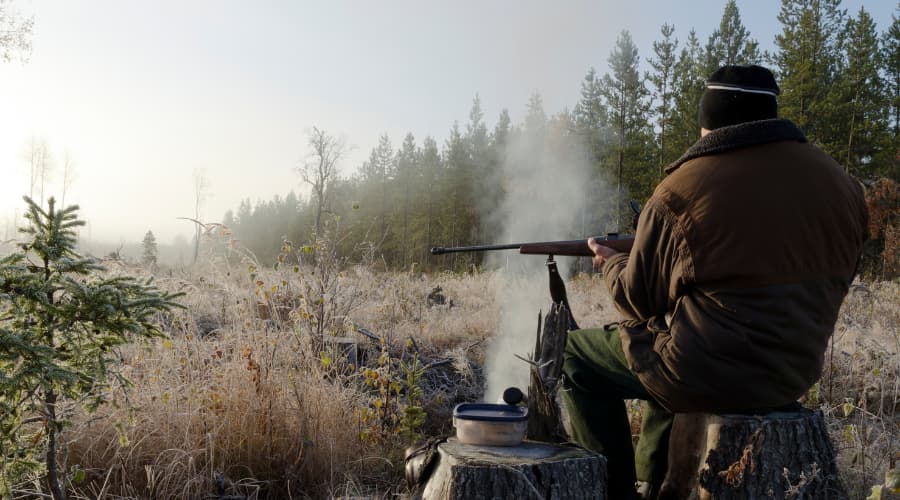Introduction to Traditional Hunting
Hunting, far more than just a leisure activity, is an ancestral practice that has spanned through the ages. Beyond its sporting dimension, it is imbued with history, tradition, and respect for nature. The sparkling eyes of hunters tell the story of this passion, this strong connection with nature, this cultural heritage passed down from generation to generation.
Understanding the Value of Hunting Tradition
The Origins of Hunting
Hunting has always been an essential activity for human survival. Our ancestors hunted to feed, clothe, and protect themselves. From their first expeditions in pursuit of woolly mammoths to the more sophisticated techniques of deer hunting, this practice has profoundly shaped our civilization.
The Evolution of Hunting Throughout Centuries
Throughout the centuries, hunting has undergone remarkable transformation. It has adapted to the changes of the times while preserving its fundamental values. The fascinating tales of our ancestors have become the legends we cherish today, stories filled with bravery, respect, and communion with nature.
Modern Hunting: A Fusion of Tradition and Innovation
Technology and Tradition in Today’s Hunting
Today, hunting reinvents itself. The modern and the ancient converge to create a practice that combines the power of technology with the wisdom of tradition. Bows and arrows have given way to cutting-edge equipment, but the heart of hunting remains the same: a deep appreciation and respect for nature.
Challenges of Modern Hunting
Modern hunting is not without its challenges. From the loss of natural habitats to social stigma, today’s hunters must navigate a complex landscape while preserving the essence of their practice.
Hunting as a Tool for Nature Conservation
Regulating Animal Populations
Hunting plays a fundamental role in regulating animal populations. It is a lesser-known but essential fact. According to a 2018 study, hunting helps prevent overpopulation problems and associated diseases in numerous species.
Preserving Natural Habitats
In addition, hunters actively participate in the preservation of natural habitats. Hunting licenses and associated fees help finance the conservation and restoration of hunting lands.
The Ethics of Hunting
Respect for Wildlife
A true hunter is, above all, a lover of nature. They respect wildlife and strive to minimize animal suffering. It is an unwritten code of honor universally recognized within the hunting community.
Responsible Hunting
Responsible hunting goes beyond respecting animals. It also involves compliance with laws, obtaining necessary permissions, and hunting only during appropriate seasons.
The Role of Hunters in Modern Society
Education and Awareness
Today’s hunters are guardians of nature. They play a key role in educating the public about wildlife conservation and the value of nature. Their captivating stories and field experiences are a valuable source of inspiration and awareness.
Hunting and the Local Economy
Beyond its ecological dimension, hunting has a significant economic impact. It supports local economies, creates jobs, and generates revenue through hunting licenses.
Personal Benefits of Hunting
Connection to Nature
Hunting is a true celebration of nature. It provides a unique opportunity to connect with nature, appreciate its beauty and diversity. Each expedition is an adventure, an opportunity to discover breathtaking landscapes and fascinating species.
Physical and Mental Health Benefits
Hunting is also an excellent physical activity. It stimulates the body, strengthens endurance, and improves coordination. Beyond physical benefits, hunting also offers mental health advantages. Being immersed in nature, away from the noise and stress of daily life, has a calming effect on the mind. Moreover, the patience and concentration required for hunting are valuable skills that can be transferred to other aspects of life.
Conclusion
In the end, today’s hunting is not only a continuation of tradition but also an essential tool for the protection and conservation of nature. Modern hunters, guided by a deep sense of ethics and respect for wildlife, contribute significantly to the preservation of our environment. It is a noble and necessary mission that deserves recognition and support.
FAQ
Q1: Why is hunting important for nature conservation?
A1: Hunting contributes to nature conservation by regulating animal populations and supporting the preservation of natural habitats.
Q2: How do modern hunters respect wildlife?
A2: Modern hunters respect wildlife by following an ethical code that includes minimizing animal suffering and adhering to laws and regulations.
Q3: What are the challenges modern hunting faces?
A3: Challenges of modern hunting include loss of natural habitats, climate change, social stigma, and compliance with laws and regulations.
Q4: How has hunting evolved over the years?
A4: Hunting has evolved from the early expeditions in pursuit of mammoths to the use of modern technology. However, respect for nature and appreciation of wildlife remain at the core of the practice.
Q5: What are the personal benefits of hunting?
A5: Hunting offers a unique connection to nature, physical and mental health benefits, and contributes to the local economy.


0 Comments